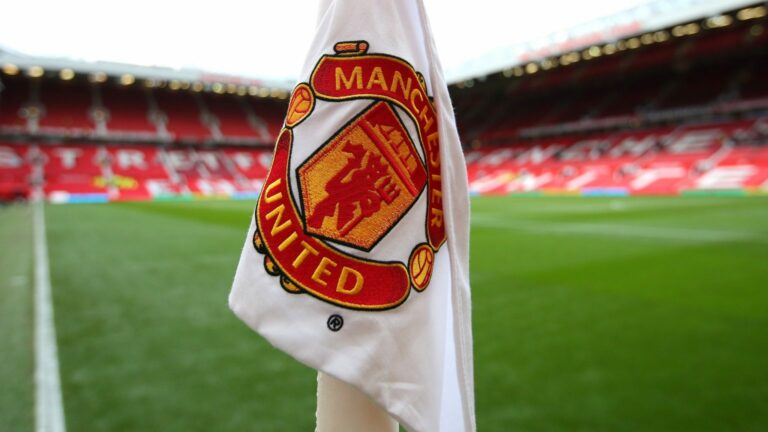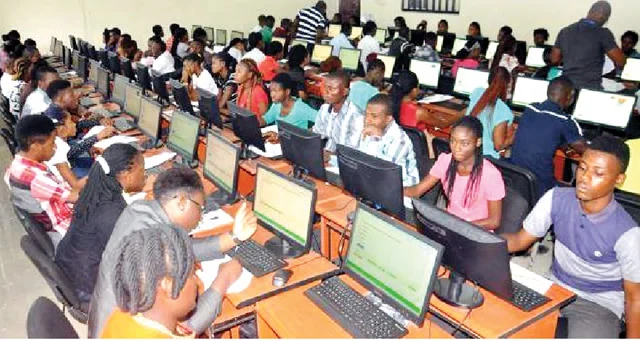Senegal’s new president orders major economic ‘action plan’
Senegalese President Bassirou Diomaye Faye on Tuesday ordered his prime minister to draw up an urgent “action plan” to strengthen the country’s flagging economy and finances, his office said in a statement.
The 44-year-old swept to victory in an election last month on a promise of radical reform, becoming the country’s youngest president despite never having held elected office.
On Tuesday he gave his prime minister and former mentor Ousmane Sonko until the end of the month to draw up an “action plan”, said the statement, released after Faye’s first cabinet meeting.
He ordered Sonko to “carry out a general review of programmes and plans” and report on “the general situation of the public finances”, international cooperation and public-private partnerships, it said.
He ordered the government to finalise the plan by the end of the month and to implement “without delay, with the (Senegalese) private sector, a bold policy to relaunch the national economy”.
He told ministers he had been elected to ensure a “profound breakaway” and a “transformation at all levels of economic and social life” in the country.
One person in three of Senegal’s 18 million-strong population lives in poverty and the unemployment rate is around 20 percent.
Its economy has also suffered from the Covid pandemic and the effects of the Ukraine war.
Debt and inflation are running high while the past three years of social and political tension have dented investment.
Unveiling his cabinet on Friday, Sonko said the government’s priorities would include employment for young people, lowering the cost of living and protecting human rights.
Police arrest six for S/African footballer’s murder
South African police said on Wednesday they have arrested six suspects for the murder of footballer Luke Fleurs, who played for popular Johannesburg club Kaizer Chiefs.
The 24-year-old defender was gunned down last week as he refilled his car at a gas station in a northwestern suburb of the city, in the latest incident to shock the crime-ridden nation.
“Police have arrested six suspects for the alleged hijacking and murder,” police spokesman Mavela Masondo (SAPS) said.
Authorities have said Fleurs was waiting to be served at a petrol station in his Volkswagen Golf 8 GTI when he was confronted by two men, who ordered him out of the vehicle at gunpoint.
Once he got out of his car, they shot him before driving away in his vehicle.
Masondo said the arrests were made early on Wednesday in Johannesburg southwestern township of Soweto — two days after detectives recovered Fleurs’s car.
Investigators believe the suspects are part of a crime syndicate responsible for other car hijackings in Johannesburg’s Gauteng province.
“The search for more suspects is continuing,” Masondo said.
South Africa suffers from a soaring violent crime rate — a key political issue ahead of general elections in May, with opposition parties pointing to the government’s perceived failure.
The country recorded almost 84 murders a day between October and December, according to official figures.
Kaizer Chiefs are one of South Africa’s top teams, having won a record 53 domestic trophies.
Ratings agency downgrades China debt outlook over economic uncertainty
Fitch has downgraded the outlook on China’s debt as it warned of increased risks to the economy while the country moves away from its reliance on growth from the property sector.
On Wednesday the US-based agency said it had revised China’s sovereign credit rating from stable to negative, saying this reflected the “increasing risks to China’s public finance outlook” as the country “contends with more uncertain economic prospects”.
The downgrade comes amid a prolonged crisis in the country’s property sector that has been running since 2021, when a regulatory crackdown on debt-fuelled construction triggered a liquidity squeeze.
The huge Chinese property company Evergrande was ordered to go into liquidation earlier this year, while last week the rival crisis-hit developer Country Garden suspended trade in its shares in Hong Kong after delaying the publication of its annual financial results.
Beijing has responded with moves to address the issues and recently announced a series of targeted measures to move growth to other parts of the economy.
This has included steps to help other sectors, including the issuance of billions of dollars in sovereign bonds, aimed at boosting infrastructure spending and spurring consumption.
Fitch said that the country’s economic prospects were uncertain because of this transition away from “property-reliant growth”, to what the government views as a more “sustainable growth model”.
It said: “Wide fiscal deficits and rising government debt in recent years have eroded fiscal buffers from a ratings perspective.”
The agency added that while the Chinese government’s fiscal policy was likely to play an important role in driving growth in the coming years, it could also keep debt on a “steady upward trend”.
Fitch forecasts that the general government deficit will rise to 7.1% of gross domestic product in 2024, from 5.8% in 2023. While it lowered its outlook from “stable”, indicating a downgrade is possible over the medium term, the agency affirmed China’s issuer default rating at A+.
The Chinese government said the decision was “regrettable” and said the ratings methodology had “failed to effectively reflect the positive effects of China’s fiscal policies on boosting economic growth”.
Beijing last month set a goal of 5% growth for the world’s second biggest economy in 2024.
Dan Wang, the chief economist of Hang Seng Bank China, said Fitch’s move reflected “fundamental concern” over China’s fiscal health and its ability to drive long-term growth.
Gary Ng, an Asia-Pacific senior economist at Natixis, stressed that the downgrade did not mean China would default any time soon, adding: “Fitch’s outlook revision reflects the more challenging situation in China’s public finance regarding the double whammy of decelerating growth and more debt.”
More than 10 million children in line of fire as war rages in Sudan— Report
More than 10 million children in Sudan have been in an active warzone during almost a year of war, a new report has warned, as it called on political leaders to take immediate action to stop the conflict.
In a report published on Wednesday, the United Kingdom-based charity, Save The Children, said that half of Sudan’s children are currently or have been within five kilometres of the front lines of the fighting, leaving them vulnerable to “gunfire, shelling, air strikes and other violence”.
The organisation worked with the Armed Conflict Location and Event Data Project (ACLED) on the report, which shows a 60 percent increase in the number of children exposed to violence from the first month of the conflict.
Sudan’s political standoff between army chief Abdel Fattah al-Burhan and the head of the paramilitary Rapid Support Forces (RSF), Mohamed Hamdan “Hemedti” Dagalo, broke into open conflict in April 2023.
The new joint analysis showed that since fighting erupted in the capital, Khartoum, on April 15, 2023, more than 10 million children have been exposed to battles, bombings, mortar and missile strikes, as well as direct attacks on civilians.
The report said a majority of the violent events have occurred in the more populated areas, including towns and cities of more than 100,000 people, increasing the risks for many children of repeated traumatising violence.
“These findings show how dangerously close to death and injury so many children in Sudan have been over the past year of war,” said Dr Arif Noor, the group’s head in Sudan. “The situation has reached boiling point.”
“Children in Sudan have suffered unimaginably – they have seen killings, massacres, bullet-littered streets, dead bodies and shelled homes while they live with the all-too-real fear that they, themselves, could be killed, injured, recruited to fight or subject to sexual violence,” Noor said.
Millions more children do not have access to adequate food, 3.8 million are malnourished and thousands of others risk death from disease as the country’s health system is near collapse, Noor said, adding that not a single child has been able to go to school over the past year.
An estimated nine million people in Sudan have fled their homes, while the United Nations and other aid groups have warned of impending famine in many parts of the country, Africa’s third largest by size.
Of that number, four million are children – the highest in the world – while 230,000 children and new mothers are likely to die from hunger without action, the report warned.
According to the UN, at least 12,000 civilians had been killed by the end of 2023, although the actual death toll is believed to be much higher.
With 25 million of Sudan’s 49 million population in need, it has become the world’s largest internal displacement crisis. While the UN Security Council has called for a ceasefire, the fighting continues unabated.
The charity called for urgent and increased funding to address the humanitarian crisis, saying that the UN’s response plan is merely 5 percent funded, with a shortfall of more than $2.5bn.
Russia’s second attempt to launch a heavy-lift rocket from Far East is abort
Russia’s second attempt to test-launch a new heavy-lift rocket from its Far Eastern space complex was aborted on Wednesday.
The launch of the Angara-A5 rocket from the Vostochny spaceport was canceled about two minutes before its planned time of 0900 GMT. State news agency RIA-Novosti said the cause was failure of the pressurization system of the oxidizer tank of the central block of the rocket.
National space agency Roscosmos said another launch attempt will be postponed for at least one day.
The first attempt on Tuesday also failed because the automatic safety system registered a flaw in the oxidizer tank pressurization system, said Roscosmos head Yuri Borisov.
The launch was to be the fourth for the Angara-A5, a heavy-lift version of the new Angara family of rockets that has been developed to replace the Soviet-designed Proton rockets.
The previous three launches were carried out from the Plesetsk launchpad in northwestern Russia.
After the 1991 breakup of the Soviet Union, Russia leased the Baikonur Cosmodrome from Kazakhstan and continued to use it for most of its space launches. The agreement with Kazakhstan allows Russia to keep leasing Baikonur for $115 million a year through 2050.
While Roscosmos has continued to rely on Baikonur, Russian authorities have developed Vostochny as the facility of choice for Angara launches. The construction of the new spaceport has dragged on for longer than planned and it has seen only limited use so far.






